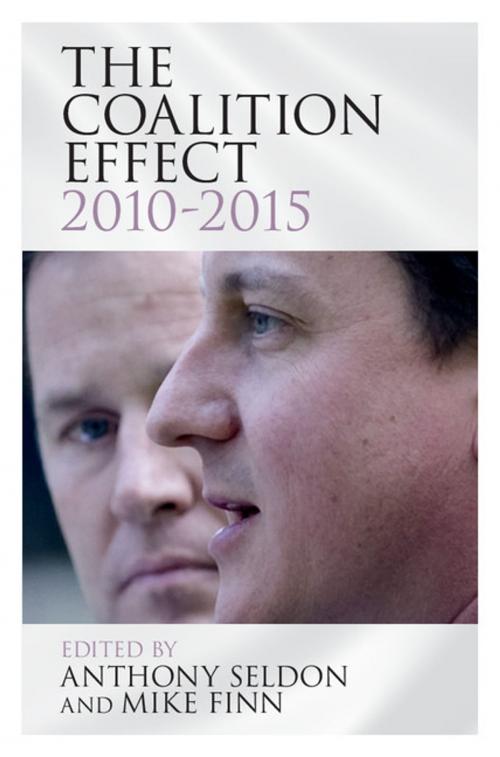The Coalition Effect, 2010–2015
Nonfiction, Social & Cultural Studies, Political Science, Government| Author: | ISBN: | 9781316289228 | |
| Publisher: | Cambridge University Press | Publication: | March 19, 2015 |
| Imprint: | Cambridge University Press | Language: | English |
| Author: | |
| ISBN: | 9781316289228 |
| Publisher: | Cambridge University Press |
| Publication: | March 19, 2015 |
| Imprint: | Cambridge University Press |
| Language: | English |
The British general election of May 2010 delivered the first coalition government since the Second World War. David Cameron and Nick Clegg pledged a 'new politics' with the government taking office in the midst of the worst economic crisis since the 1930s. Five years on, a team of leading experts drawn from academia, the media, Parliament, Whitehall and think tanks assesses this 'coalition effect' across a broad range of policy areas. Adopting the contemporary history approach, this pioneering book addresses academic and policy debates across this whole range of issues. Did the coalition represent the natural 'next step' in party dealignment and the evolution of multi-party politics? Was coalition in practice a historic innovation in itself, or did the essential principles of Britain's uncodified constitution remain untroubled? Fundamentally, was the coalition able to deliver on its promises made in the coalition agreement, and what were the consequences - for the country and the parties - of this union?
The British general election of May 2010 delivered the first coalition government since the Second World War. David Cameron and Nick Clegg pledged a 'new politics' with the government taking office in the midst of the worst economic crisis since the 1930s. Five years on, a team of leading experts drawn from academia, the media, Parliament, Whitehall and think tanks assesses this 'coalition effect' across a broad range of policy areas. Adopting the contemporary history approach, this pioneering book addresses academic and policy debates across this whole range of issues. Did the coalition represent the natural 'next step' in party dealignment and the evolution of multi-party politics? Was coalition in practice a historic innovation in itself, or did the essential principles of Britain's uncodified constitution remain untroubled? Fundamentally, was the coalition able to deliver on its promises made in the coalition agreement, and what were the consequences - for the country and the parties - of this union?















